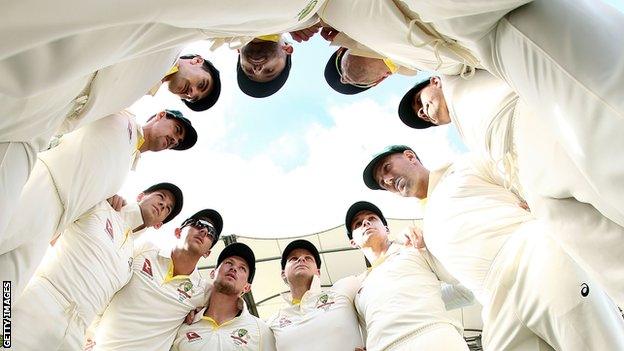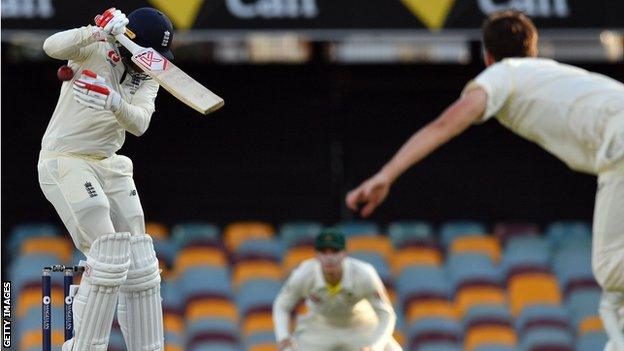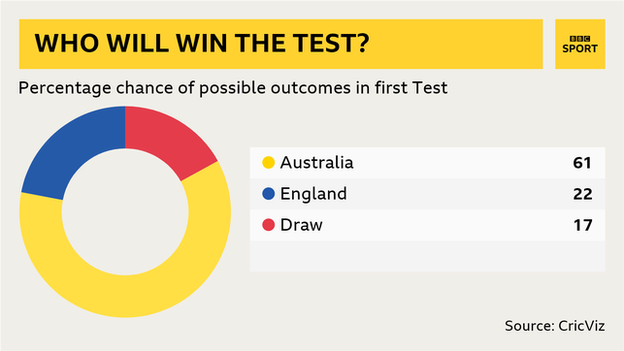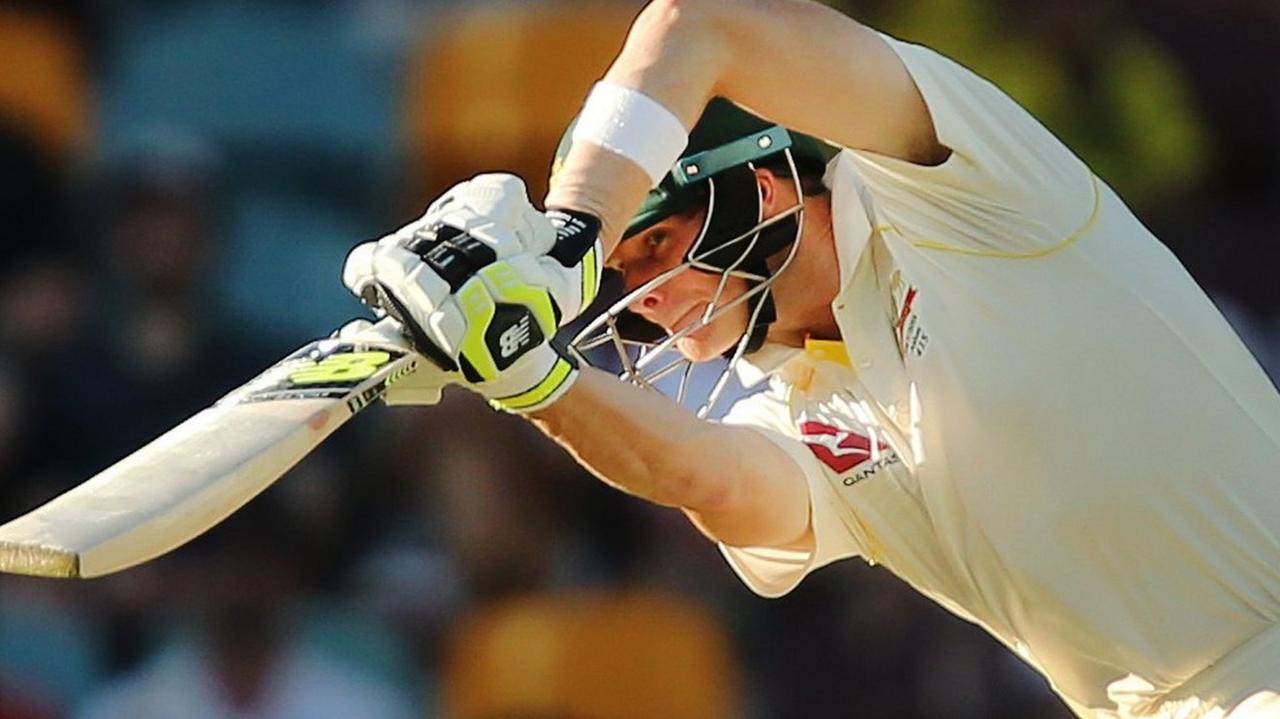Ashes: England taught lessons as James Anderson situation raises questions
- Published
Pint-sized Ashes: Day three's best bits as Smith takes charge
Steve Smith's unbeaten 141 on the third day of the first Ashes Test at the Gabba was a brilliant innings, one that stamped his authority on the series.
It was particularly good from the Australia captain because he had to fight with himself - in more than eight and a half hours at the crease, facing 326 deliveries, he hit just 14 boundaries.
He served up two big lessons to England.
Firstly, he trusted his tail-enders, which the tourists did not do on the second morning.
When Pat Cummins arrived at the crease with the score 209-7, Smith may have felt the urge to get on with it, but the skipper placed every faith not only in Cummins, but even number 11 Nathan Lyon.
As a result, Australia added 66 for the eighth wicket and 30 for the 10th.
Compare that to how Jonny Bairstow tried to protect Stuart Broad, not showing confidence in a man who is as good a batsman as Cummins. Bairstow ended up playing a needless pull shot and fell amidst a collapse of six wickets for 56 runs.
Secondly, Smith taught England how not to be affected by the plans of the fielding side.
England tried everything - bowling wide of the off stump, bowling short, sticking six men on the leg side - but Smith simply would not join in.
That was in contrast to how Dawid Malan was suckered into Mitchell Starc's short ball plan on Friday morning, the first wicket in England's slide.
In terms of the great Ashes hundreds, it reminded me of Ricky Ponting's ton in the first Test on this ground in 2006-07.
When a skipper plays such an innings in the opening match of a series, it removes the pressure. From that point, he can concentrate on leading.
Not only that, but he stirred both his team-mates and the raucous Gabba crowd.
When he was in the 90s, you could feel the tension rising, the Australian fans dying to explode in celebration.
After he got there, his chest-thumping celebration, beating the badge, fired everyone up.
That manifested itself when Australia went out to field. I was down in the ABC commentary box, almost on pitch level, and could see right into their huddle.

Australia get in a huddle before taking to the field for England's second innings
It wasn't Smith who was delivering the Churchillian speech, but big David Warner. I'm sure the bleep button would have been needed had a microphone been anywhere near him and, when the home side took the field, their eyes were bulging out of their heads.
What followed was some phenomenal Test cricket that put me in mind of the hostility England faced four years ago.
England had faced almost all day in the field, Australia's pace bowlers were fresh, charging in with the new ball and the Gabba was baying for blood.
It was horrible, brutal, nasty bowling. The blow that Joe Root took in the face from Starc was horrid.
Root and Stoneman stand firm
The difference this time, though, was England did not flap about. Yes, they lost two wickets, but Root and Mark Stoneman got through it.
For Stoneman, in his first Ashes Test, it was particularly impressive. Root has been here before, he's proven, but Stoneman will be incredibly proud that he weathered that storm.
The Surrey man will have dreamt about playing this kind of cricket but the last time England were in Australia, he perhaps may not have thought he would be on the next Ashes tour.
As an opening batsman, that is as tough as it gets, yet Stoneman gutsed through it with a huge amount of bravery.

England opener Mark Stoneman reached 19 not out from 49 balls in his side's second innings
'Hard to make sense of Anderson business '
England sleep in a position where they are effectively 7-2.
Yes, there is a chance that it could go wrong for them tomorrow, but if they can battle to a lead of 230 or more, they will have a real chance of ending Australia's 29-year unbeaten record in Brisbane.
I say that with one caveat - that all of the England bowlers are fit.
The business with James Anderson was hard to make sense of.
He bowled three overs with the second new ball in the morning session, picking up 1-2, but then Root took him off.
Anderson returned later to bowl a longer spell, but he bowled none of the last 16 overs of the Australia innings, nothing after tea, and nothing at Australia's last pair.
From a correspondent's point of view, you can only assume he had an injury problem, yet England were adamant he was fine and his absence was all part of a plan.
If that is the case, and England are telling the truth, you have to question the tactics.
Having said that, you almost hope that is poor tactics, simply because of Anderson's importance to England's chances in this series.

Jonathan Agnew was talking to BBC Sport's Stephan Shemilt.
- Published25 November 2017

- Published25 November 2017

- Published19 November 2017

- Published24 November 2017
